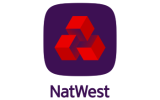Heritable Bank Mortgages
There are no tables for this criteria
There are no tables for this criteria
There are no tables for this criteria
There are no tables for this criteria
There are no tables for this criteria
There are no tables for this criteria
There are no tables for this criteria
What Are The Fees I Can Expect To Pay On A Mortgage?
The costs relating to your mortgage will be set out clearly by the lender in what is known as the “Keyfacts” document provided to you.
These costs may include:
- Arrangement Fee – Charged by the lender to cover the administration costs of processing your mortgage. This will vary from deal to deal. You normally have the option of adding this fee to your mortgage but this will increase your cost of borrowing over the mortgage term.
- Mortgage broker Fee – If you have used a mortgage broker to help arrange your mortgage for you then a fee may be charged which will be outlined in your keyfacts document.
- Mortgage Account Fee – Applied by the lender at outset when you first take out your mortgage to cover the set up and termination costs of your mortgage.
- Valuation Fee – Charged by the lender to value your property in assessing the value for mortgage purposes.
- Re-inspection fees – If a lender has required you to make agreed repairs to the property a re-inspection may be required
- Higher lending charge – If you are borrowing a high loan to value the lender may decide they wish to insure the possibility that you may need to sell your home and this results in a loss.
- Early redemption charges – If you pay off part or all of your mortgage earlier than expected the lender may charge you a fee – this will be covered in your keyfacts document.
- Mortgage exit fee – Paid to your lender when you repay your mortgage.
- Insurance costs – as part of your mortgage you may be encouraged to take out insurance either by a broker or the lender to cover buildings insurance and other optional insurance such as mortgage life insurance.
Top 10 Mortgage Tips For 2024
- If you are unsure of your mortgage options, seek mortgage advice from a FCA regulated independent mortgage broker
- Maximise the deposit you can put down on your property to benefit from the most competitive Mortgage interest deals.
- Read the Lender Mortgage key facts document carefully to understand the costs being applied by the lender.
- Ensure you are comfortable that mortgage repayments (whether repayment or interest only) fall within your budget.
- Remember that mortgage discounts are temporary, and borrowing rates may increase when the discount period ends.
- If you are remortgaging, ask your current lender what deal they can offer you, as well as shop around.
- If your lender’s property valuation is too low, ask them to reconsider and provide supporting evidence from the sale price of other properties in your area.
- For interest only mortgages ensure that you plan carefully how to pay off your mortgage and check at regular intervals that your repayment strategy is on track.
- At the time of writing interest rates are at record lows. While borrowing is cheap now, this situation may change, so factor in a rise in interest rates into your budgeting calculations.
- Consider mortgage unemployment insurance in the event that you lose your job. This may provide valuable breathing space in covering mortgage repayments while you look for a new job.
How much can I borrow on my mortgage?
While there is a greater onus on mortgage lenders to lend responsibly you will also need to consider what level of borrowing is appropriate for your circumstances.
In simple terms lenders will base how much you can borrow on a multiple of your income (joint income for couples). However there are a number of factors that will determine what you can borrow from a mortgage company.
Mortgage lenders are required to apply strict rules to what they can lend to you based on your personal circumstances. In assessing affordability lenders will not only look at your income but also your outgoings e.g. monthly household bills. Lenders will look at your bank statements typically over the last 3 months to determine whether you can afford the mortgage you are looking for.
Many mortgage deals have initial periods where preferential terms are offered and borrowing costs are lower than normal – when this discounted period ends make sure you can afford any reasonable increase that may kick in. In assessing affordability lenders will take into account your income and outgoings and your current employment history. In calculating disposable income your total income will be taken into account less other debts you may have and living expenses.
The lender considering your mortgage application will have their own method of assessing affordability but it makes sense to do your own budgeting calculations to ensure the monthly repayment requirement is well within your budget.
In calculating how much you can borrow the lender will apply a maximum amount you can borrow called the loan to value of the property (LTV). E.g. If you are a first time buyer the lender may stipulate a LTV of 95% which means they are prepared to lend up to 95% of the value of the property (this will be assessed by the mortgage company’s own appointed surveyor). In this scenario the first time buyer would be required to put down at least 5% deposit towards the property purchase. The mortgage rate deals offered by a lender will be affected by the level of deposit that can be put down.
Generally speaking the higher the deposit that can be put down the better the mortgage rate can be achieved.




